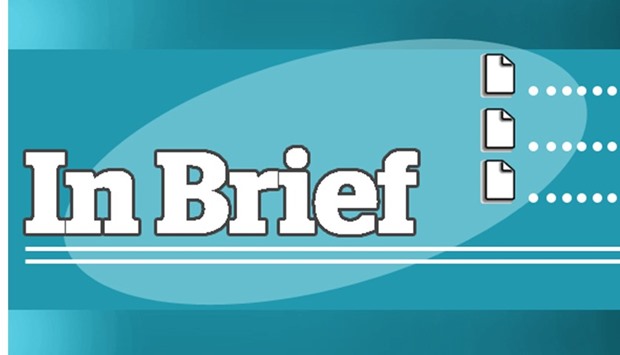Qatar’s embassy in Dakar delivered medical and food aid, provided by Qatar Charity to Senegal to help it combat the coronavirus (Covid-19) pandemic.
The aid delivery took place in presence of Director General of the High Authority of Waqf (HAW) Halima Gob, a number of Senegalese government officials and Qatar’s ambassador to Senegal Mohamed bin Kurdi Talib al-Marri.
Halima Gob thanked Qatar for its humanitarian initiative, and confirmed that HAW will continue its co-ordination and co-operation with Qatar Charity in all fields.
For his part, ambassador al-Marri said that Qatar believes, since the beginning of the Covid-19, that containing and eliminating the pandemic in the world needs co-operation and solidarity and that countries must support each other financially, morally and humanely.
He reiterated the strength of the Qatar-Senegal bilateral relations, and said that this aid is a vivid example of the distinction of relations.
Ehsan marks World Alzheimer’s Day
QNA/Doha
The Elderly Empowerment and Care Center (Ehsan), affiliated with Qatar Foundation for Social Work (QFSW), marked the World Alzheimer’s Day, which falls on September 21 each year, through an awareness campaign on social media entitled “Let’s Talk about Alzheimer’s” aiming at raising awareness of the disease and alleviating its social impacts.
The centre launched a number of programmes and activities on Alzheimer’s and published a number of awareness leaflets about the disease and talked about the psychological aspects related to Alzheimer’s patients and ways to deal with them.
The centre also co-operated with a number of bodies during its awareness campaign, such as the Ministry of Endowments and Islamic Affairs and Hamad Medical Corporation.
Today, the centre will host Medical Director of Rumailah Hospital and Qatar Rehabilitation Institute Dr Hanadi al-Hamad via video conference, to talk about the country’s efforts to care for Alzheimer’s patients in light of the spread of the coronavirus (Covid-19) pandemic.
The centre has intensively prepared its campaign on social media to reach the largest segment of the public due to the circumstances of the coronavirus and the precautions related to social distancing.
MoI issues tips on safe use of home security camera systems
The Ministry of Interior (MoI) has advised residents to get home surveillance devices from accredited suppliers only to ensure that the system is safe for use.
“To ensure the safe use of home security camera systems and to keep them safe from being hacked, please visit the link Security Systems Department at http://moi.gov.qa before buying them to ensure that the company is accredited,” the MoI said in a tweet yesterday.
Besides visiting the link on the ministry’s website, people can also call 2343999 to get the relevant information.
The MoI also urged people to go through the user manual of home security camera systems and devices to learn about the various options and requirements.
“We recommend that you obtain a copy of the user manual that comes with the security camera to understand how to use it and how to change the password, and to ensure the security requirements,” the ministry added.
According to information available on the MoI website, the Security Systems Department provides several services to implement the law regulating the use of cameras and security surveillance systems. These services can be classified as follows:
* Issuing licences for security surveillance systems and devices after confirming their conformity by the Inspections Section.
* Issuing conformity certificates for cameras and security surveillance devices and places of installation.
* Preparing and deciding bids for installing cameras and security surveillance devices, in co-ordination with the competent bodies.
* Issuing licences for importing cameras and security surveillance devices.
1,000 newborns diagnosed with rare disorders or genetic diseases
Only a little over 1,000 newborns, out of a total of around 350,000 babies born in Qatar since 2003, have been diagnosed with rare disorders or genetic diseases, local Arabic daily Arrayah reported yesterday, citing a source at Hamad Medical Corporation.
Qatar’s Newborn Screening Programme (QNSP), offered free of charge to all babies within 72 hours of birth, now tests for about 80 different disorders, up from 32 at the launch of the initiative. The cases of those babies diagnosed with rare disorders or genetic diseases are followed up at the genetic diseases department at Hamad Medical City.
The source stressed that the early detection of such cases helps greatly in avoiding the possible complications that could happen to them in the future, which may end up in chronic disability. Qatar is considered the first country in the region to adopt the screening programme.

